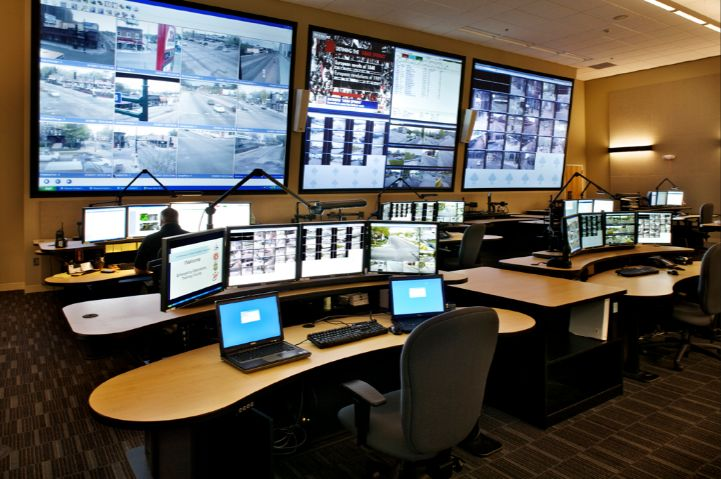Finding the perfect commercial property can seem like searching for an elusive needle. Commercial real property decisions are more than just aesthetics. They affect your budget, branding, operation and the long-term performance. To avoid unexpected costs, it’s important to plan your approach carefully. The steps below will assist you in identifying the property, verify it, and secure a commercial property, while also protecting your rights.
1. Clarify Your Business Needs
Start by defining what your company needs in terms of physical space. Take into consideration layout, size and location, parking requirements and access. Are you a store looking for foot traffic, or a company that requires warehouse space? Make a list of must-have features and desired additions. Knowing exactly what you require will help you reduce your search, and eliminate properties that do not meet your requirements.
2. Check Property Records
Prior to visiting a property in person, it’s important to look over the property’s documents to get a better understanding of its history. Find public records that provide ownership information, zoning class as well as tax assessments and any encumbrances or liens that are in place. Making sure to review these documents can reveal limitations that could impact your business‘s activities or expose the past legal issues. A clear title and zoning compliant are strong evidence that the transaction is going to go without a hitch.
3. Review Zoning and Land-Use Codes
Zoning laws define how property can be used – office, retail industrial, mixed-use and more. Examine the municipal zoning regulations to ensure that your proposed business is allowed. Be aware of any special-use restrictions or exemptions. If your business’s isn’t in line with the current zoning regulations, you might require changes or a variance. In the event of a delay, it could stop operations or result in penalties.
4. Evaluate Environmental Factors
Environmental hazards can pose serious risks for your business. Get an assessment of the environmental impact (ESA) to determine problems such as chemical storage, soil contamination or flood risk. Even if the property seems clean an Phase I ESA can surface problems that may be hidden. Taking care to address environmental concerns early can prevent costly cleanup or liability from working on a hazardous location.
5. Estimate True Operating Costs
Costs for lease or purchase are only a small part in the total financial cost. There are also expenses for maintenance, utilities and security, management costs as well as taxes on your property. Make sure you have a detailed estimate of your expenses and include a buffer in your budget. Contacting current tenants or looking through expense reports could aid in predicting future costs that you would be ignoring.
6. Inspect the Building Thoroughly

A thorough building inspection is not a matter of negotiation. Employ a professional who is qualified to assess the construction as well as HVAC plumbing, electrical roofing, as well as safety measures. Finding any flaws, such as damaged foundations, faulty wiring or heating systems that are inefficient, permits you to discuss fixes or price adjustments prior to concluding the purchase. This could save you thousands or hundreds of thousands in future repairs.
7. Consider Infrastructure and Accessibility
Take a look beyond the physical structure. Your business depends on the reliability of your infrastructure in order to run effectively. Verify that the utilities (power water, telecommunications) are in line with your requirements. Examine internet connection speeds as well as backup alternatives. Examine the transportation options for staff as well as customers and deliveries. Accessibility factors like loading docks and ramps, freight elevators as well as ADA conformity can also improve operational efficiency and compliance with the law.
8. Negotiate Terms and Legal Protections
After you’ve selected the property you’re interested in, get a real estate lawyer or a commercial lease expert to draft favorable conditions. Important elements include lease structures (base rent and common-area maintenance, also known as CAM) renew options for tenants, enhancement provisions, clauses for subletting and early termination provisions. Be sure that the contract contains the provisions for disputes resolution, insurance requirements as well as liability protection and maintenance obligations. The agreement should be clear and legal. It can shield you from unreasonable rent increases or obligations that are not disclosed.
9. Plan for Future Flexibility
The business’s needs change, as do space requirements. Explore options for expanding, reducing or ending the lease earlier if needed. Look for flexible lease conditions or clauses that permit you to alter the location as your company grows without incurring costly costs. A flexible lease plan ensures that the property will remain an asset and not a burden and will continue to grow over time.
10. Conduct Final Due Diligence
Before signing any document be sure to conduct a final inspection to make sure all paperwork is in good order. This is the final due diligence that includes making sure that the repairs promised are in order, obtaining evidence of inspections, verifying the final readings of utility meters and making sure that all needed permits are in good standing. In the event that leasehold improvement was a part of the agreement, verify timeframes, budgets and builder’s qualifications. Inspecting all boxes will reduce the possibility of surprises after the move.
Conclusion
The right property for your business will require more than simply finding an attractive property. From defining requirements to analyzing legally binding documents to ensuring flexibility in operations Every one of the 10 steps above can help safeguard your investment and ease the way to success. A thorough research and strategic due diligence do not just reduce risks, but also allow you to make an informed decision that is future-proof. Follow these tips to navigate the landscape of commercial real estate without fear and shield yourself from costly mistakes when your business expands.





